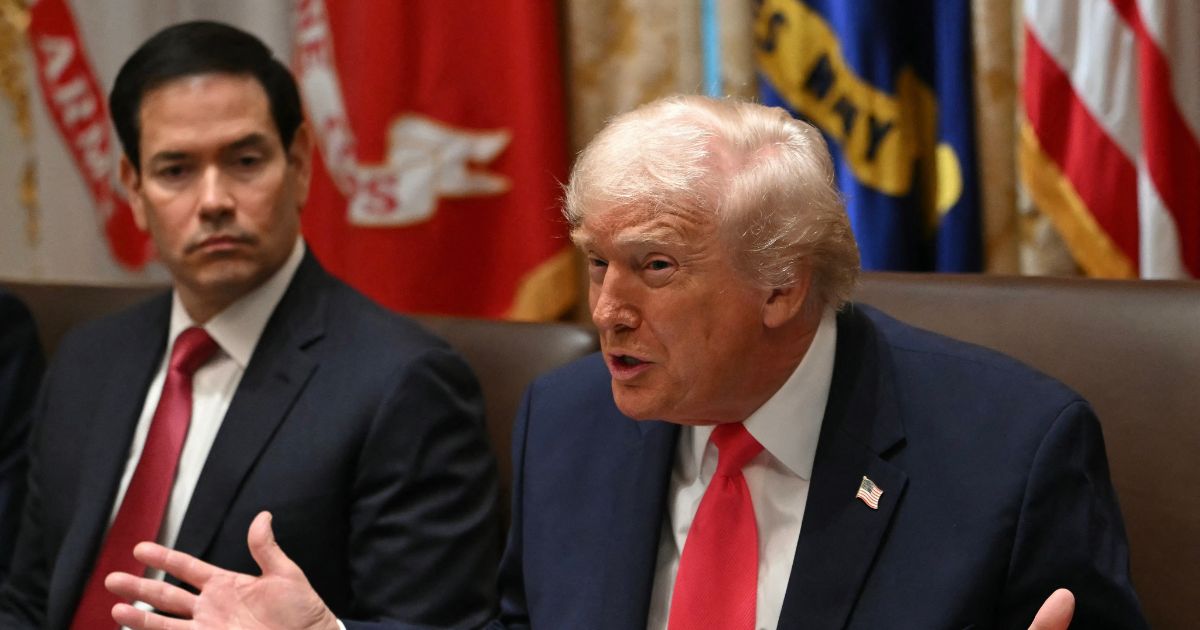5 Reasons Why Corporate America Is Abandoning DEI
Over the past year, numerous companies have begun to reverse their diversity, equity, and inclusion (DEI) initiatives, with McDonald’s and Meta being among the latest to do so, following pressures from activists.Critics argue that DEI initiatives create needless divisions and fail to improve intergroup relations, asserting that they can discriminate against white individuals and divert resources from essential services.A recent participant in a DEI training program shares a outlook, viewing DEI as a harmful framework that exacerbates societal tensions by forcing individuals into conflicting identity categories.
The article highlights several reasons why DEI is perceived as a threat to American society, starting with its tendency to intensify group tensions rather than diminish them. The training experience revealed how DEI encourages individuals to identify strictly as victims or oppressors based on their identity groups, fostering conflict rather than unity. It also points out the substantial financial burden of DEI initiatives on organizations, likening it to a self-sustaining loop that consumes resources without demonstrated benefits. the article argues that DEI introduces a culture that contradicts traditional American values, suggesting that its advocates envision a fundamental societal transformation that may not align with the existing sociopolitical landscape.
A slew of companies in the last year have backtracked on their “diversity, equity, and inclusion” initiatives. McDonald’s and Meta were the most recent to fall, with activist Robby Starbuck claiming credit for persuading Mickey D’s to abandon DEI because diversity quotas discriminate against white applicants and diversity goals punish companies not sufficiently “diverse.” As the Los Angeles wildfire catastrophe shows, diverting funds to DEI causes can also result in less money for essential services such as firefighting.
These accusations against DEI are accurate and reason enough to end their influence over corporate America and federal, state, and local governments. But as someone who recently completed his employer’s DEI training, I can tell you DEI is much, much worse than a system that, ironically, is prejudicial against whites, males, and “cisgenders.” It is a calamitous, insidious evil that, if not systematically expunged from American institutions, will destroy them and us.
Here are five reasons DEI is such a threat to the American way of life.
1. DEI Doesn’t Diminish Tensions Between Groups, It Intensifies Them
In one of the lessons for my employer’s DEI program, students watch a video montage of a bunch of people who name their associated identity groups. Actors identify themselves as black, Latino, Asian, female, gay, trans, disabled, and a panoply of other various categories. Lastly is a straight, white guy who awkwardly, almost reluctantly, states, “I’m Scottish.” It is obvious he is not Scottish; he’s just a white, American male who has some Scottish ancestors who likely arrived in America many generations ago. But he too must play his part in the DEI project, and, though he is clearly a pushover of a personality, his job is to be the representative of a white, heteronormative, patriarchal society that oppresses everyone else.
As much as DEI claims to celebrate individuals, it actually demands they fit into identitarian groups of either victim or victimizer. If you’re a racial or sexual minority — regardless of your wealth, profession, or social status — you get to be a victim and enjoy all the social and professional benefits of alleged victimhood. If you’re not, then regardless of what you’ve actually done or the amount of money in your bank account, you have to be the victimizer, which entails various forms of self-flagellation and public penance to atone for the sins of your identity group.
In another DEI lecture for my training, a black, female DEI professional talked about “advocates,” those white persons who actively collaborate with the DEI agenda but who “cannot help but step in it” by doing or saying the wrong things and thus need constant coaching to overcome their biases and prejudices. Is it any wonder such a divisive system encourages people to find some reason, any reason, to identify as a victim?
But it also encourages conflict and tensions between groups. Certainly, some weak-kneed, self-loathing, or brainwashed individuals will accept a social arrangement where they must constantly confess their sins. But those with any self-respect will bristle at the patronizing, condescending nature of DEI and fight back against being maligned not because of who they are as individuals but because of some (often contrived) identity group to which they belong. As Glenn Loury has argued, this won’t end well.
2. DEI Is a Costly, Self-Licking Ice Cream Cone
Another DEI lecture for my work openly admits that effectively implementing DEI will be costly. Companies and organizations must create and maintain their own DEI budgets, with separate DEI staff to create DEI programs, run seminars, host guest lecturers, advise leadership, and monitor progress on the implementation of DEI initiatives. These technocrats will counsel management on adding DEI to professional promotion criteria to ensure everyone’s cooperation.
DEI, my program explained, includes race, so-called gender, and sexuality, as well as “age, generation, religion, disability, neurodiversity, ethnicity, geography, experience, skillset, income, education, family status, and more.” Given such an incredible scope of criteria for DEI to monitor, this ensures that DEI will be an endless enterprise, sucking up ever more money and personnel. It is the ultimate self-licking ice cream cone. And as much as DEI advocates cite DEI as a revenue generator, just ask Bud Light how that worked out for them.
3. DEI Fosters Its Own Culture Antithetical to American Culture
DEI advocates argue that DEI is a “lasting culture shift.” But we’re not talking about analog to digital or on-premises infrastructure to a cloud-based model. We’re talking about the adoption of an entirely different sociopolitical reality, with its own new language: cisgender, heteronormativity, microaggressions, intersectionality, allies, “women of color,” “co-conspirators” (white males who encourage DEI), and “covering” (hiding one’s true identity). This is an entirely different, un-American model for human interactions, one based not on neutrality and equality before the law but on a complex hierarchical system of grievance.
American culture was founded upon principles of life, liberty, and the pursuit of happiness. It encouraged personal responsibility, individual virtue, and free labor. It unencumbered us from the rigidity of classism, enabling social and economic mobility at an unprecedented level. DEI, in deed if not word, aims to reverse all of that. It is a system whose rewards are not based on merit but on identitarianism and contrived “systemic” grievances. It is a new caste system.
4. DEI Is Demonstrably Illogical and Incoherent
Given the acronym, DEI is supposed to be about diversity and inclusion. But it so obviously is not. In my DEI training, multiple lectures made a half-hearted attempt to address concerns that DEI is prejudicial against whites and conservatives. Yet it called criticisms of DEI “divisive” (read: racist, homophobic, fascist), and accused critics of being “jealous” and “resentful.”
DEI quite aggressively seeks to exclude those whose beliefs oppose its premises. Anyone who, say, believes homosexuality or transgenderism is immoral, or refuses to use someone’s “preferred pronouns,” is someone to be cast out, not included. Those refusing to acknowledge the systemic racism or patriarchal oppression of historical or contemporary America are also anathema. DEI is the epitome of exclusion and groupthink.
5. DEI Doesn’t Champion People, It Infantilizes Them
Finally, far from celebrating and empowering people, DEI actually engenders narcissism and delays their moral development. This is obvious in the way it encourages people to be victims who should condescendingly lecture the unenlightened about their own faults and inadequacies. For example, my employer’s DEI training consistently declared that everyone needed to patiently listen to young people entering the workforce, show them special deference because of their creativity, and provide lots of positive reinforcement because young Americans have difficulty receiving criticism. DEI fosters a society that coddles younger generations.
In his book Scientific Irrationalism: Origins of a Postmodern Cult, Australian philosopher David Stove observes that if you wish to recommend a system of thought to those who will find its blatant irrationalism implausible, then you must mix and disguise it with ideas that will appeal to a broader audience. This is precisely what DEI does, by claiming it is simply about ensuring “equity” for everyone, that all voices are heard, and that everyone is respected and appreciated.
But as I learned through my own professional DEI training, it is nothing but an alternative worldview that aims to overthrow the very foundations of our American republic. It’s not just individual corporations that must jettison DEI. Our entire body politic must reject it, lest it devour us.
Casey Chalk is a senior contributor at The Federalist and an editor and columnist at The New Oxford Review. He has a bachelor’s in history and master’s in teaching from the University of Virginia and a master’s in theology from Christendom College. He is the author of The Persecuted: True Stories of Courageous Christians Living Their Faith in Muslim Lands.
" Conservative News Daily does not always share or support the views and opinions expressed here; they are just those of the writer."




